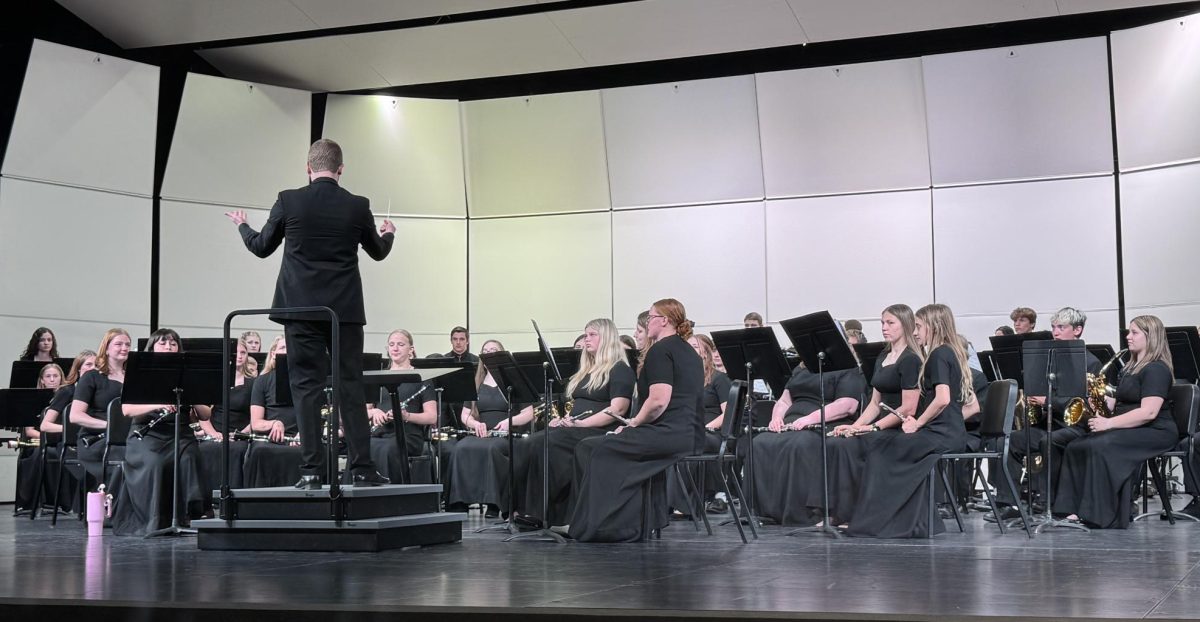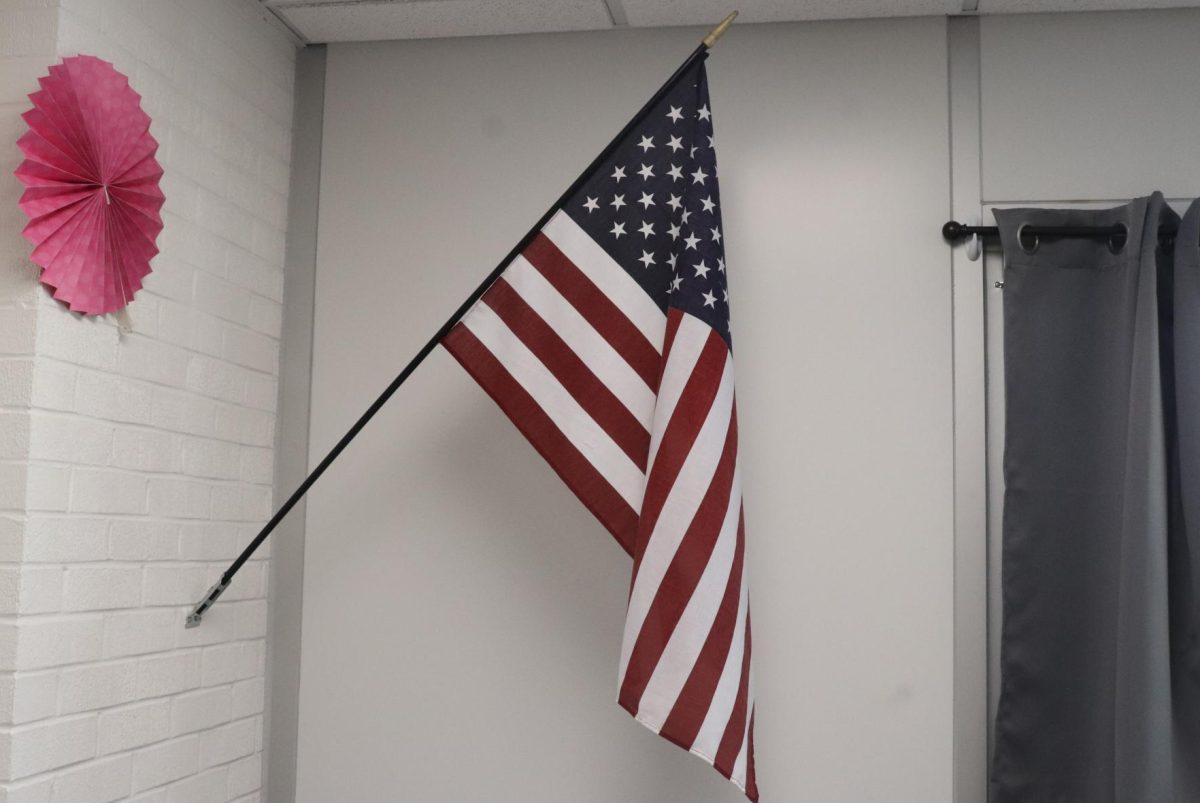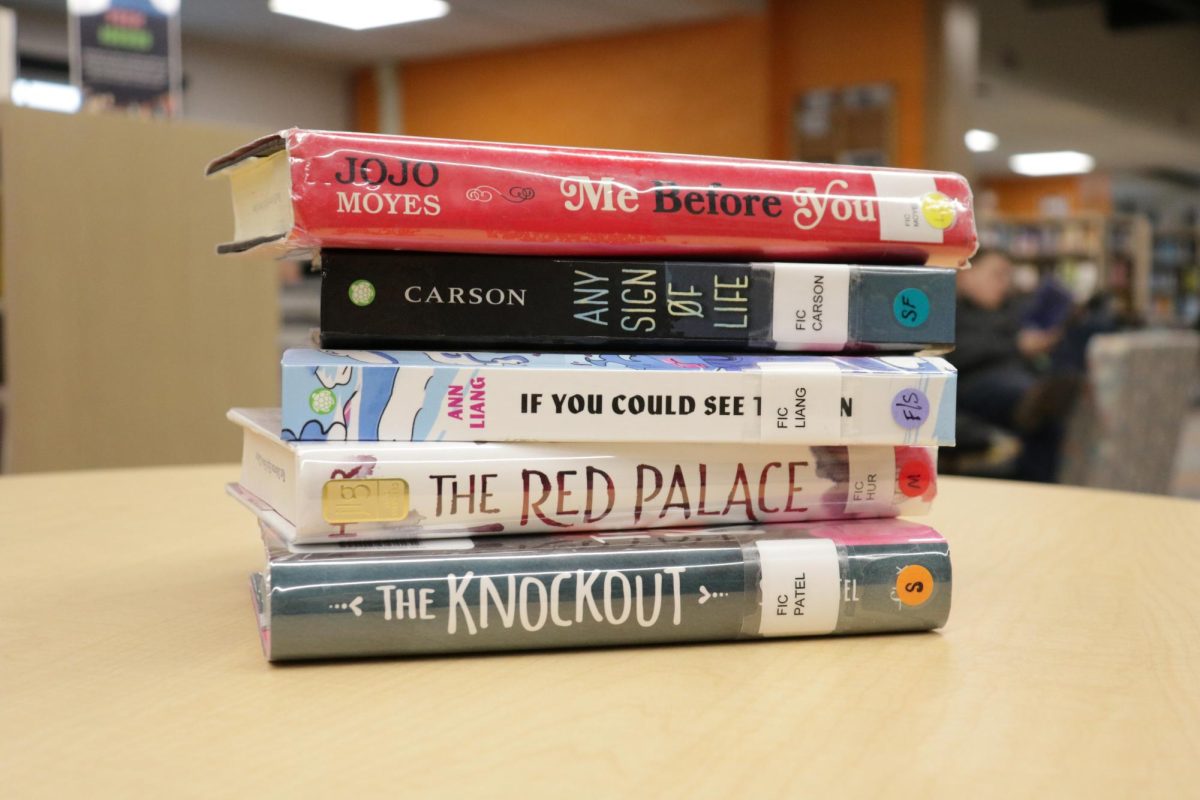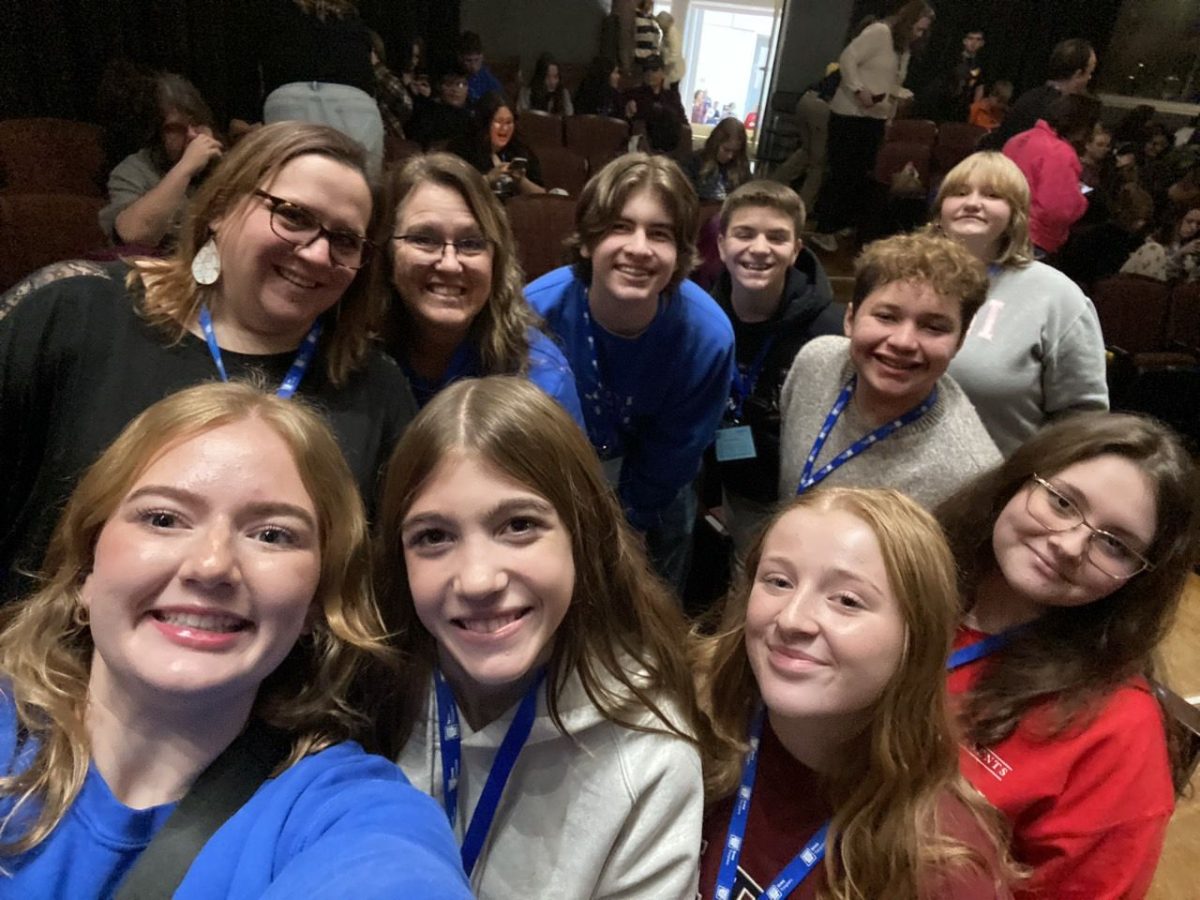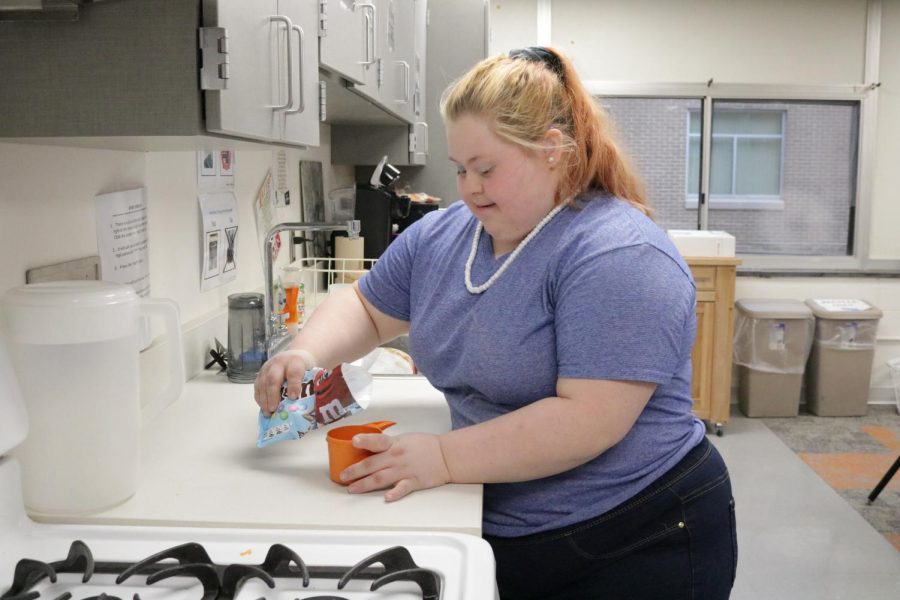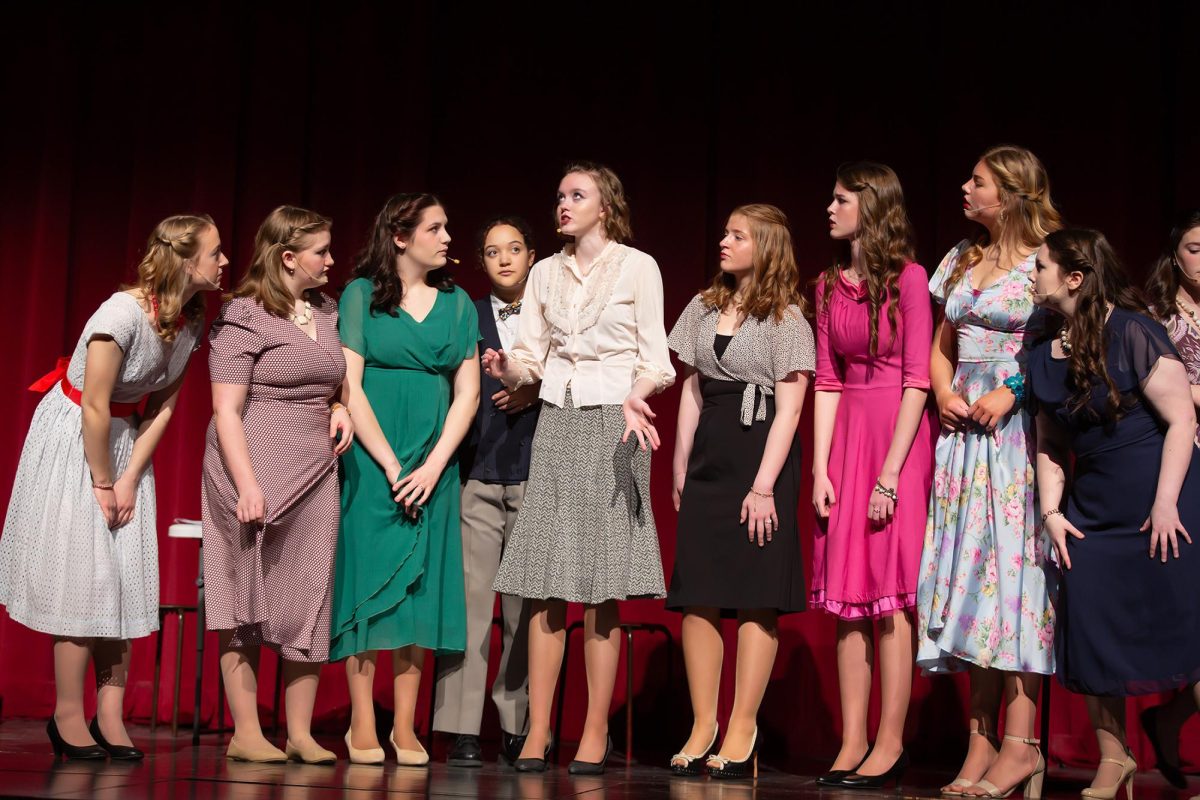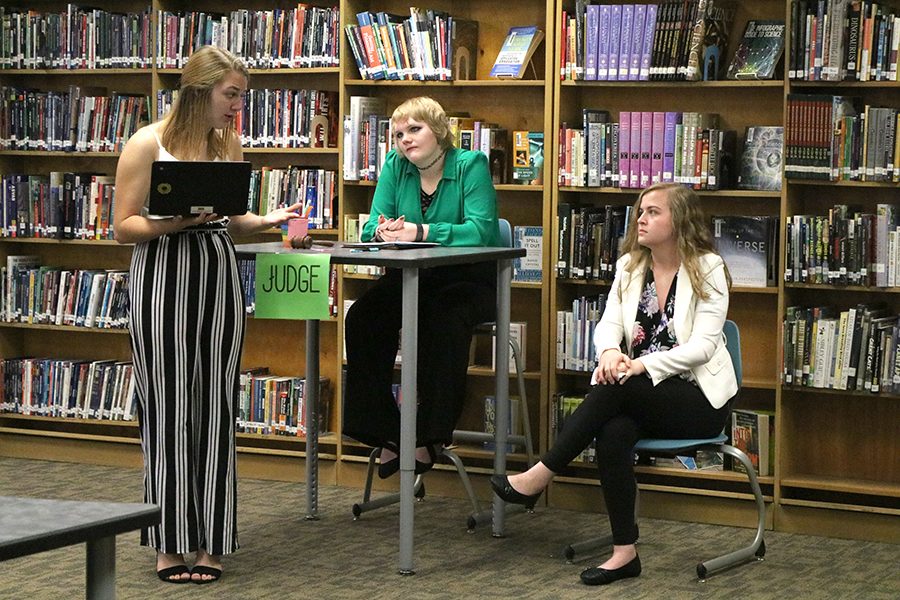Tell it to the Judge
English III Classes Battle it Out During Biannual Mock Trials
Taylor Hammer (11) questions Molly Mullis (11) on her involvement as Reverend Hale in the Advanced English III Mock Trial while Brynn Boeckenstedt (11) keeps order as the judge.
November 22, 2019
Who is to blame for all the deaths in the Salem Witch trials?
Seventy-nine juniors set out to determine just that on Oct. 24 and 25 during their respective English classes. After reading Arthur Miller’s “The Crucible,” students determined who they believed was to blame for the false accusations and twenty-four deaths in Salem, Massachusetts, in 1692.
The Advanced English III class held the first trial on Oct. 24. In this class, the prosecution chose to charge Abigail Williams, a character in the novel, with involuntary manslaughter.
Abby Osborne, the Advanced English III teacher, said her favorite part is how student led the trials are.
“The students are assigned a character based on what we as teachers feel is the best role for them,” Osborne said. “From there on, students have to be responsible for their own learning and know their character extremely well so they are ready to be questioned. If they don’t put in the work and don’t get into that deeper thinking, they won’t be successful in the trial.”
Molly Mullis (11), a student in the Advanced English III class, played the role of Reverend Hale. She felt that the trial helped her develop a deeper understanding than a regular test ever would.
“I read ‘The Crucible’ about five times just to prepare for the trial,” Mullis said. “This will be memorable for me because I had to know my character so well, so I wouldn’t get caught in a lie on the stand. Even though the side I was a witness for didn’t win, I will now remember ‘The Crucible’ forever and learned some life skills like how to think faster on my feet.”
The two English III classes held two trials on Oct. 25. In those classes, the prosecution was instructed to charge John Proctor, another character in the novel, with the act of spreading hysteria throughout the town of Salem.
Jamie Smith, an English III teacher, said her favorite part of the trials is the student involvement.
“It’s interesting to see every student in each class really get into their character when we get to the actual trial,” Smith said. “You can even see the students who maybe don’t love English class all the time enjoying playing their role at the trial. A lot of those students even shine and do an amazing job at the trial.”
Jadyn Werner (11), an English III student, played the role of a prosecution lawyer and said the trial helped her learn more about a lawyer’s job.
“I didn’t know being a lawyer was going to be so much work,” Werner said. “Even though it took a lot of effort, I loved it by the time we actually got to the trial. It was exciting to try and catch people in lies when questioning them.”
After years of doing the mock trial, Osborne overall believes the trials help students remember “The Crucible” and the life lessons in it better than a basic, multiple choice test ever could.
“We prefer to use this as the summative for the unit because it brings a level of competition, secrecy and friendly tension between the prosecution and defense in every level of classes,” Osborne said. “Over the years that we’ve done this trial, it has now become a memorable part for students’ junior year.”


